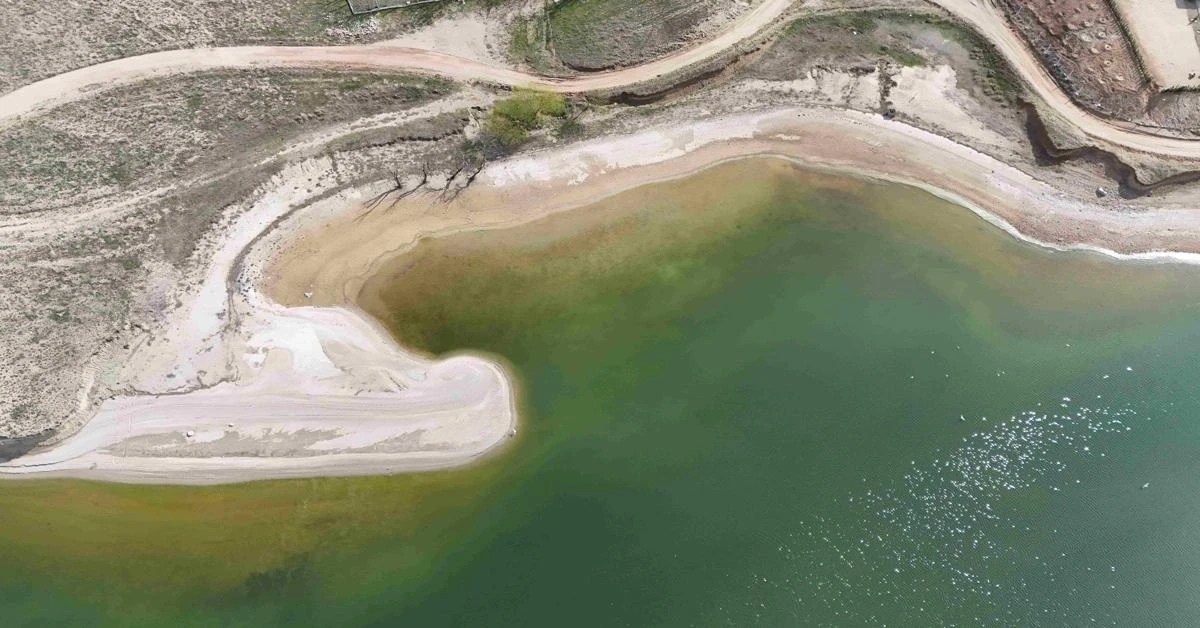Türkiye’s longest river Kizilirmak faces alarming drought risk

Türkiye’s longest river Kizilirmak, flowing through Kirikkale, faces a heightened risk of drought
Kizilirmak, Türkiye’s longest river that flows through Kirikkale, faces a severe drought threat. The receding dam water has exposed land where sheep were recently spotted grazing.
Spring began to show its face after a winter without snow and rain in Kırıkkale. In a city where air temperatures are rising, the danger of drought is alarming. The water level in Kapulukaya Dam, fed by Türkiye’s longest river, Kizilirmak, also dropped. The Turkyilmaz family, farmers, and breeders in Karaahmetli village graze their small cattle on the dam bed as the water level drops.
The water level also dropped in Kizilirmak, which originates from the slopes of Kizildag in Sivas province. The river flows through Kayseri, Nevsehir, Kirsehir, Kirikkale, Ankara, Cankırı, Corum, and Samsun and into the Black Sea. Islets emerged in the 1,355-kilometer-long (841.96-mile)river. Ali Turkyılmaz, a livestock breeder, stated that the dam water had receded by approximately 50 meters (164.042 feet) and that there was not enough snow and rain in the winter season.
‘I don’t know how this will end’
Stating that farmers will also be affected by the drought, Turkyilmaz said, “Dam levels, which were previously quite high, have seen a substantial decrease. There was no snow or rain. The dam water receded by 50 meters. I do not know what the outcome of this matter will be. Previously, the dam water reached the road, but it has dropped significantly.”
“They are planting chickpeas on one side. They will also plant beets on this side. I don’t know how to irrigate,” he said.
‘Cattle grazing where water receded’
Explaining that he grazes his animals in the area where the dam water has receded, Cagri Turkyilmaz said, “Not last year, but the year before that, the dam water was further away. Since there is no snow and rain, there is a withdrawal now. Our sheep are currently grazing where the water recedes.”
“It snowed here once, and that too was not effective; it melted the next day. There is a lot of agricultural land here; if it continues like this, farmers will also be affected. They will most likely not be able to irrigate their crops, and if there is no irrigation, there will be no crop. This situation is terrible for the farmer. He may not even be able to recover his cost. May God help them all,” he said.
Source: IHA



